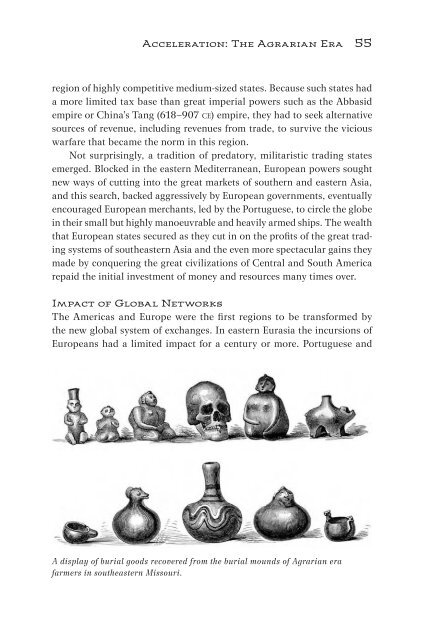This Fleeting World
This Fleeting World
This Fleeting World
Create successful ePaper yourself
Turn your PDF publications into a flip-book with our unique Google optimized e-Paper software.
Acceleration: The Agrarian Era 55<br />
region of highly competitive medium-sized states. Because such states had<br />
a more limited tax base than great imperial powers such as the Abbasid<br />
empire or China’s Tang (618–907 ce) empire, they had to seek alternative<br />
sources of revenue, including revenues from trade, to survive the vicious<br />
warfare that became the norm in this region.<br />
Not surprisingly, a tradition of predatory, militaristic trading states<br />
emerged. Blocked in the eastern Mediterranean, European powers sought<br />
new ways of cutting into the great markets of southern and eastern Asia,<br />
and this search, backed aggressively by European governments, eventually<br />
encouraged European merchants, led by the Portuguese, to circle the globe<br />
in their small but highly manoeuvrable and heavily armed ships. The wealth<br />
that European states secured as they cut in on the profits of the great trading<br />
systems of southeastern Asia and the even more spectacular gains they<br />
made by conquering the great civilizations of Central and South America<br />
repaid the initial investment of money and resources many times over.<br />
Impact of Global Networks<br />
The Americas and Europe were the first regions to be transformed by<br />
the new global system of exchanges. In eastern Eurasia the incursions of<br />
Europeans had a limited impact for a century or more. Portuguese and<br />
A display of burial goods recovered from the burial mounds of Agrarian era<br />
farmers in southeastern Missouri.


